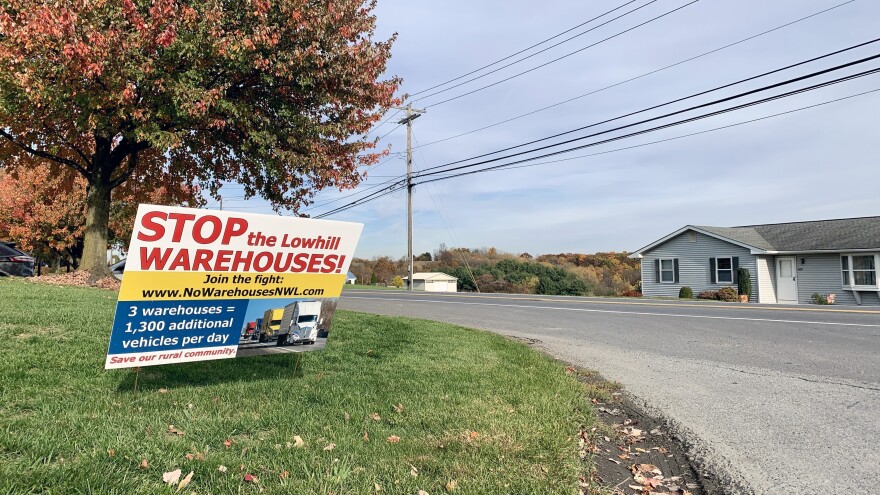LOWHILL TWP., Pa. — When George Wessner first signed an agreement of sale with a warehouse developer for his property two years ago, he said he never imagined it would cause an uproar.
“I really didn't think in a million years it would be like this,” Wessner said.
Wessner is a member of the board of supervisors in Lowhill Township, a small, 2,100-person municipality in northwestern Lehigh County.
The township is full of rolling hills, with views of mountains in the distance. Farmland and single-family homes dominate the landscape.
Wessner’s 51-acre property on Betz Court is slated to house one of three proposed warehouses, which together will cover more than 700,000 square feet on the township's southern border.
Those plans have made residents furious — and organized.
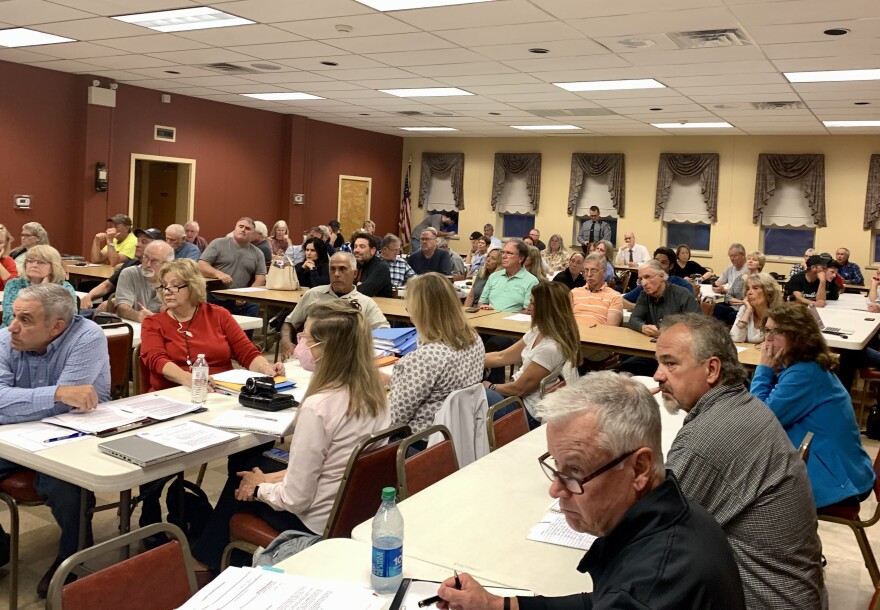
“Maybe we don't have all the money they do, and don't have all the experts they do," said Debby Keba, a member of the resident group Northwestern Lehigh Residents for Smart Growth.
"But we live here, and we have time. This is our backyard. This is where we live, and we're not leaving. It's our property. It's our children. It's our future.”
The resident group has brought dozens of people to local meetings. It has consulted with lawyers and experts, and read through zoning ordinances and state laws, trying to find any way to stop the warehouses.
Its efforts saw the highest voter turnout in Lehigh County in last year’s primary election, at 39%, electing candidates who vowed to stop warehouse development.
And their activism led to township supervisors denying all three warehouse plans — with Wessner dissenting.
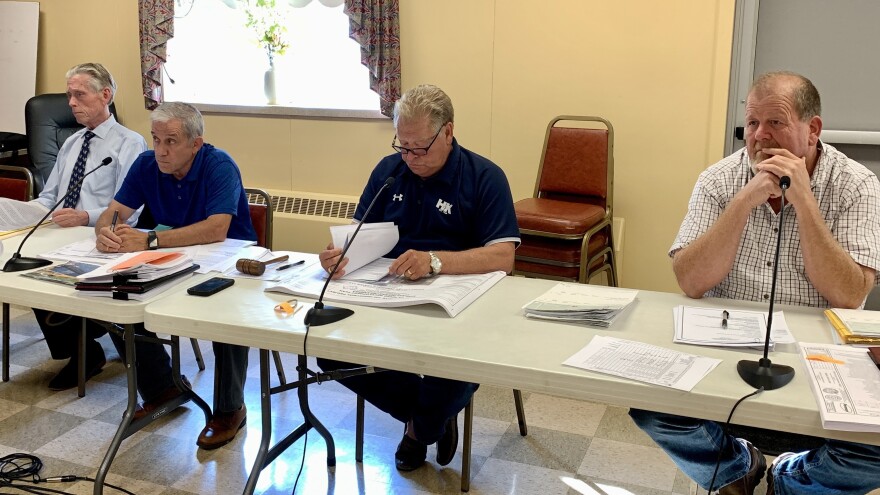
The battle in this rural community illustrates the conflicts that have grown with the Lehigh Valley's warehouse economy — friction between neighbors, and between developers and residents intent on limiting development. Local government officials often are stuck in the middle.
In communities like Lowhill, the residents have organized and are ready to take the fight to court.
Lehigh County judges in two cases ruled that the supervisors must reverse their denial of the warehouse plans because the supervisors did not follow the correct procedure.
"Right now we're taking taxpayer money and we're throwing it out the window.”Supervisor George “Buddy” Wessner, Jr.
Lowhill Township Board of Supervisors Chairman Curtis Dietrich said the township will appeal those decisions. He said he doesn't have an estimate for how much the legal fees will cost.
“We will continue to work with legal counsel to proceed in the best interests of the township,” Dietrich said.
But Wessner, himself an elected supervisor, said he thinks there is no chance the township will win the lawsuits — and it could “go broke” trying to pursue them, since the appeals aren’t covered by insurance.
“There's no one reasonable out there that would take their money and just throw it out the window like this,” Wessner said. “And right now we're taking taxpayer money and we're throwing it out the window.”
Why residents don’t want the warehouses
The main reason members of Northwestern Lehigh Residents for Smart Growth say they oppose the warehouses is the truck traffic that would come.
The developments are projected to bring an estimated 1,300 vehicles on the roads each day, according to traffic studies.
"They are state roads, but they've never seen that kind of traffic."Kim Weinberg, president of Northwestern Lehigh Residents for Smart Growth
The roads are not set up for the increased volume of trucks, residents argue. Current plans show two warehouses would have trucks drive on Kernsville Road, then take a sharp left turn to get onto Route 100.
Kim Weinberg, president of Northwestern Lehigh Residents for Smart Growth, said she worried the trucks would take a shortcut to Interstate 78 by driving straight at the intersection instead — and end up driving on Claussville Road, which she lives on.
“If you look at Claussville Road and Kernsville Road, they are two minor roads. They are state roads, but they've never seen that kind of traffic,” Weinberg said.
“We don't have shoulders on the roads. We have telephone poles close to the road. We have 97 driveways and seven intersecting township roads along Claussville.”
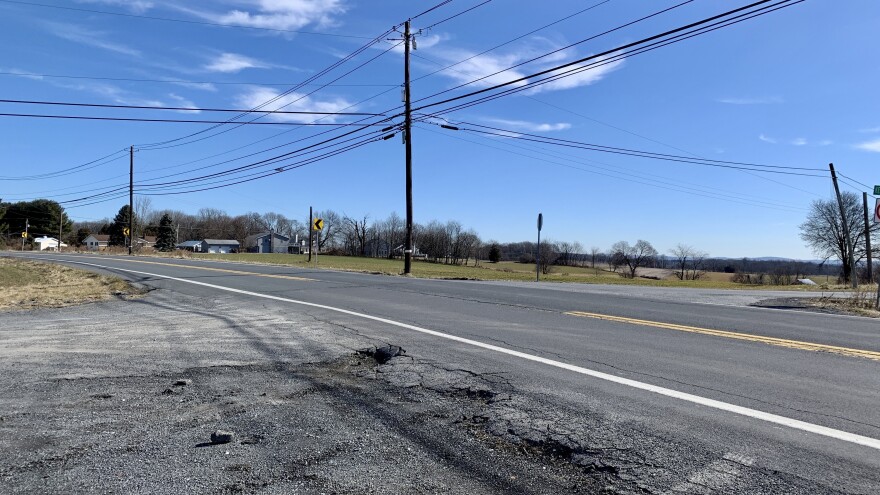
The warehouses are being built “on spec,” meaning there is not a set tenant, so it is difficult to tell exactly how many trucks they would bring.
Wessner said developers told him the actual number of truck trips will be lower than the estimate. But members of the resident group fear it could be many more, especially if it turns out to be a “high cube warehouse,” which has multiple stories and produces more truck traffic.
Another potential challenge is the design of Route 100. The road merges from two lanes into one as it gets out of Fogelsville. It then goes to a steep slope that Dietrich said poses difficulties even for cars when there is snow — and could be dangerous for trucks.
Lowhill also lacks its own police force and relies on volunteer fire companies in other municipalities, leaving some residents worried they are unprepared if any disasters happen, such as the warehouse fire in West Easton in April 2023.
Residents have also raised concerns about the environmental impacts of the plan, which led the state Department of Environmental Protection to hold public hearings in October on whether the department should grant permits to two of those warehouse plans.
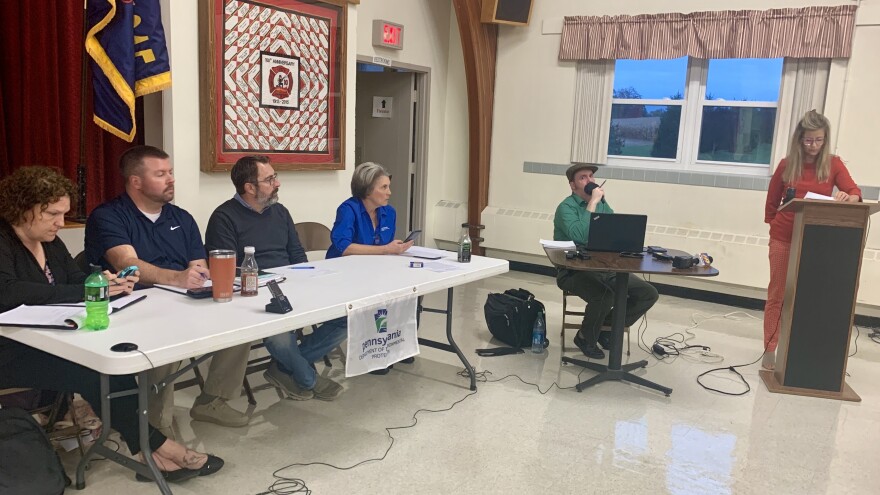
Many residents said they worried that the warehouses would pollute the nearby waterways that lead into Jordan Creek, a tributary to the Lehigh River.
Resident Joann Mertz cited a recent study that found that four Lehigh Valley streams were contaminated by PFAS, and another that found the Lehigh River is threatened by “poorly planned development” of warehouses and distribution centers.
“With so many warehouses being built in our area in a relatively short time frame, it's impossible to really know the effects they will have on the tributaries’ wetlands wildlife,” Mertz said at the DEP hearing.
The state agency has since issued a preliminary denial to one of the permits and has not acted on the other one.
Understanding the laws
People trying to stop warehouse development in Pennsylvania have a hard time succeeding, often because state law limits what local governments can do.
The 1968 Pennsylvania Municipalities Planning Code (MPC) tells communities what they can and can’t do in terms of zoning. As part of it, municipalities have to zone for every type of use in their communities.
The only exception is when municipalities take part in a multi-municipal comprehensive plan, said Lehigh Valley Planning Commission Executive Director Becky Bradley.
“If they're in a multi-municipal plan, and one of their partner communities in that plan has those uses already covered, then they can actually take them out of their zoning code,” Bradley said.
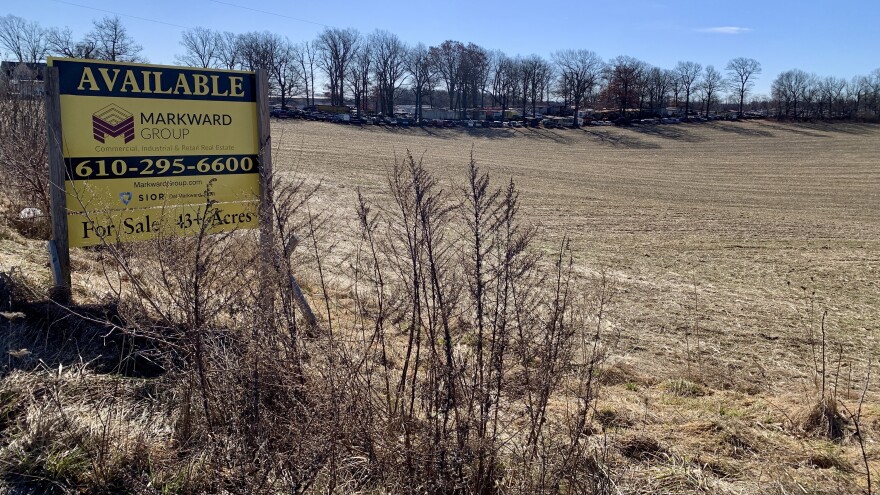
Bradley and the LVPC have helped 37 local communities create five multi-municipal plans so far, according to the commission’s annual report. It’s their main tool to help municipalities stop “locally undesirable land uses,” also known as “LULUs.”
Lowhill Township is part of a multi-municipal comprehensive plan for the Northern Lehigh area with Slatington and Weisenberg, Lynn, Heidelberg and Washington townships.
The first iteration of the plan was created in 2004, long before the conversations about warehouse proliferation began.
Weinberg said she thinks that plan clearly meant to keep industrial development limited to Weisenberg, which has land next to I-78. But the plan itself is not legally binding — the zoning ordinances it guides are what is actually enforceable.
Weisenberg Zoning Officer Brian Carl previously also worked as the zoning officer for Lowhill. Looking at the laws, he determined warehouses are allowed in the Rural Village zoning district, where the projects were proposed.
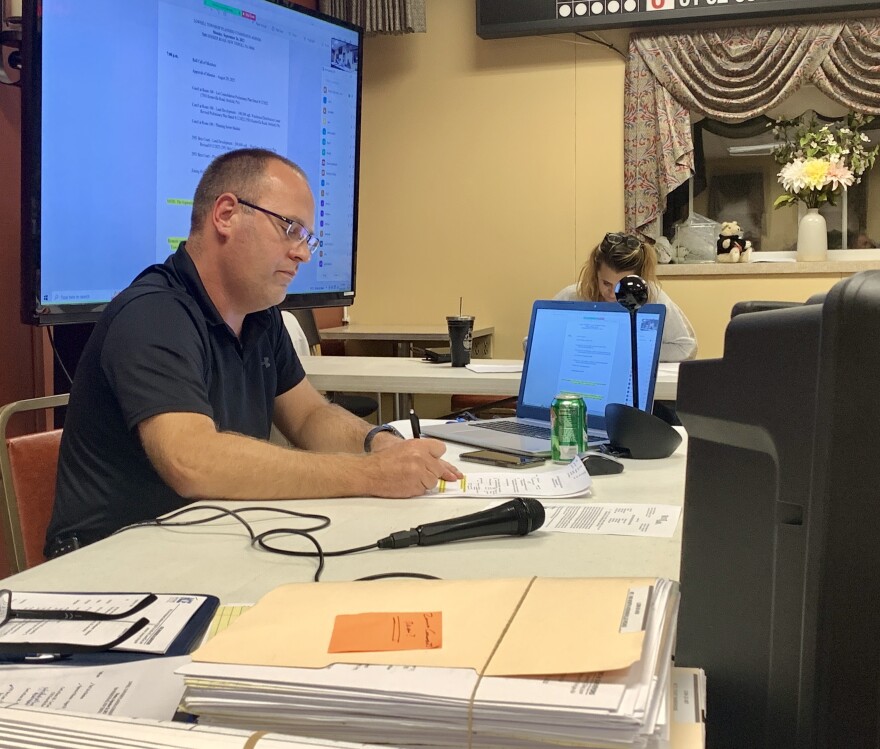
At the time, the Rural Village district did not specifically mention warehouses, but it did allow for a “wholesale establishment, distribution station [and] storage building,” as well as an “industrial park.”
Carl declined to speak about Lowhill for this report. He resigned from his position with Lowhill in late 2022, saying his workload had become too much to handle with both townships.
But after his resignation, he said in an interview that he stood by his interpretations of the zoning ordinances. He said residents had had an opportunity to appeal that decision, but that timeframe had already passed.
Bradley said Carl followed appropriate procedure.
“You have to go with the closest use by definition as a zoning officer and make your determinations whether something is allowed or not,” Bradley said.
The MPC says that if a proposed development meets the area’s zoning and land use laws, there is nothing the township can legally do to stop it.
However, if any of the warehouse developers cannot secure an NPDES permit for the current design of the building, they would need to resubmit a revised plan to the Lowhill supervisors, bringing everything back to square one.
Can other local cases bring hope?
There have been some cases of local municipalities winning lawsuits after governing bodies denied plans that were allowed according to zoning and land use laws.
Dietrich cited a recent case in which Bethlehem developer Lou Pektor appealed Palmer Township supervisors’ decision to reject his plan for a manufacturing facility.
Pektor lost that appeal in January. The judge ruled the supervisors were right to justify their decision based on the “health, safety and welfare” of the residents.
“It's an important case and gives us hope,” Dietrich said.
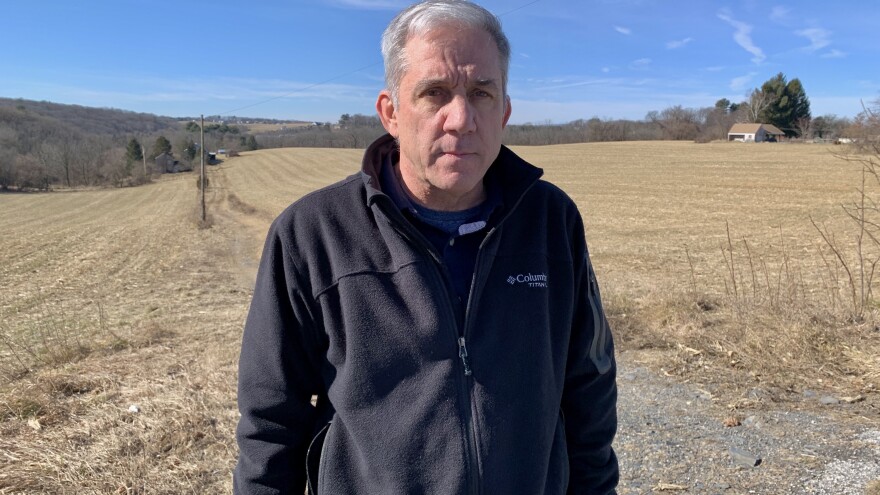
But unlike Lowhill’s case, the manufacturing facility was allowed via “conditional use” under Palmer Township’s zoning ordinances. Conditional uses require an additional hearing before the typical land development process.
In that hearing, the developer has to prove the project meets certain conditions outlined in the zoning ordinance. If it doesn’t, the governing body can legally deny it.
In another case, a Northampton County judge recently ruled that Moore Township Zoning Hearing Board didn't violate the law when it rejected zoning relief for two warehouses planned for the former Southmoore Golf Course.
But plans for the warehouses, which would cover 488,000 square feet on 41 acres, are not doomed.
The warehouses were a permitted use when they were first proposed, so the judge determined that township officials can't impose restrictions on the proposed warehouses beyond those spelled out in zoning regulations.
If Judge John Morganelli’s ruling is upheld, the developers will be able to revise their plans to comply with requirements and build them anyway, township solicitor David Backenstoe said.
Why sell your land to a warehouse developer?
Wessner, the Lowhill Township supervisor, said he did not think the warehouse use on his land would affect the township hardly at all.
The property is currently home to his landscaping company, Stonehaven Supply, and a trucking depot where tractor-trailers are parked.
“There's hundreds [of trucks] that go out of there between us and Stonehaven deliveries and customers and the tractor-trailers that are there now,” Wessner said.
When the other two warehouses were proposed, Wessner said he was excited about the additional tax revenue they would bring the township — an estimated $850,000 a year, according to comparisons with other similar warehouses, he said.
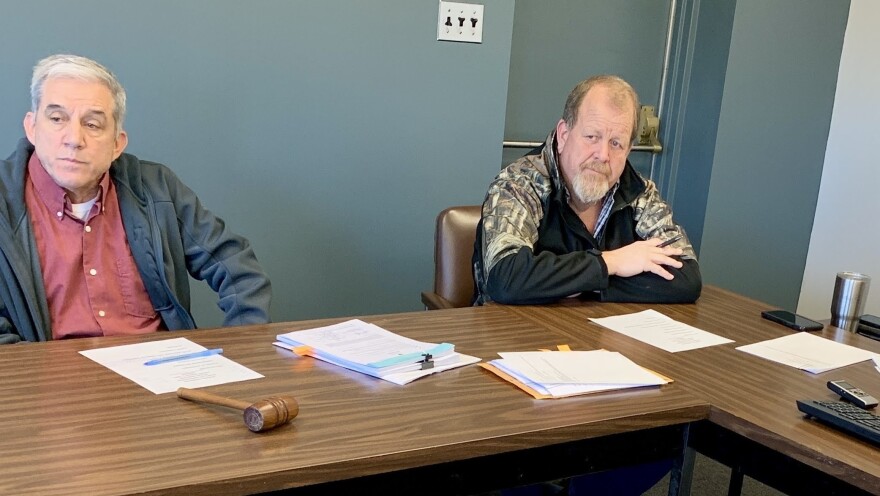
That’s equal to more than half of the tax revenue in Lowhill’s 2024 budget.
“It benefits us because we get the tax benefits without hindering our schools, without overloading our schools,” Wessner said.
“I could be putting 100 homes on this property. That loads our schools up with kids, that just costs us more money. We don't gain tax revenue from more housing.”
Parkland School District recently cited the slowing of industrial development and the increase of housing developments as a reason the school board had to raise property taxes.
But resident group member Sue McGorry said the costs to Lowhill Township could outweigh the tax benefits.
“When you start to look at the cost of security, safety, the environmental issues, the roads — and that's probably one of the biggest problems — we'd see very quickly that, rather than profit, we'd have quite a deficit in terms of tax revenue,” McGorry said.
The fallout
Wessner said the last couple of years have been “rough” for him and his wife.
“They're more apt to say stuff to my wife at grocery stores and gas stations,” Wessner said of warehouse opponents. “A lot of times they won’t open up to me, you know, most people don't have enough nerve to do it.
“But yeah, they really push my wife and me and call us greedy people. And it's not fair. We bought this property as a commercial property, and we should be able to sell it.”
Wessner said he has added cameras to his property after another property with a warehouse plan was graffitied with curse words. He said he received a few death threats through untraceable phone calls, and many have called for him to resign.
Members of the resident group denied that they had done any of those things. Weinberg, the residents’ group president, said she has also received “very nasty” messages, and some people even came to her house.
“People would drive by and they'd honk a lot and yell,” Weinberg said.
Resident group member Keba said if Wessner does not like the criticism, he should resign.
“If it's so uncomfortable in this hot seat, why do you stay there?” she said. “You're not getting paid, you're not going to get in trouble. Just retire like the other people did when it got hot.”
“They got most everybody else out. But I was elected to be there for the term, and that's what I'm gonna stay to do.”Supervisor George “Buddy” Wessner, Jr.
Three people resigned from positions in the township in October 2022: Carl, former supervisor Rob Werley and solicitor Keith Strohl.
Werley and Strohl cited family and work obligations as their reasons for stepping down.
Werley previously voted in favor of granting preliminary approval to one of the warehouse plans, and Strohl had advised township officials not to deny the plans.
Wessner said he would not resign.
“They got most everybody else out,” Wessner said. “But I was elected to be there for the term, and that's what I'm gonna stay to do.”
The litigation so far
Two of the proposed Lowhill warehouses already were given "deemed approval," or approval by the court, despite township supervisors’ denial of the plan.
The first deemed approval was for CRG Service Management's 299,800-square-foot warehouse at 2951 Betz Court.
The second was for Core5 Industrial Partners’ planned 312,000-square-foot warehouse at 2766 Route 100.
The township lost an appeal to the first decision and is in the process of appealing the second, Dietrich said.
In another case brought by the Lehigh County District Attorney’s Office, a judge ruled Dietrich was improperly appointed to the board.
The denial of a preliminary plan for Core5 Industrial Partners’ 100,569-square-foot warehouse at 7503 Kernsville Road is currently in litigation, with a hearing scheduled Oct. 3.
Dietrich said the legal fees for the initial litigation will be covered by insurance, but any appeals of a judge’s decision will have to be paid out of pocket.
The township’s ability to pay for an appeal was recently called into question after supervisors accepted a bid to fix Narris Road for almost $532,000 after a section of it collapsed. The road will likely need further repairs in the future.
The township’s total budgeted expenditures for 2024 are about $1,792,000.
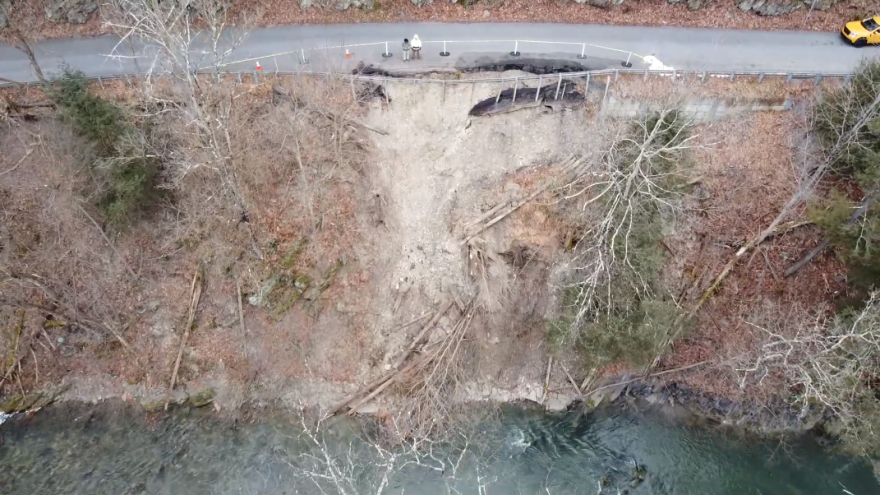
What they’ve learned
None of the Smart Growth group members were involved in the township government before the warehouse proposals.
“I didn't feel it necessary,” Mertz said. “I believed that the people that were in charge could decide if somebody was allowed to put a pool in or fence up, and how much salt they needed to clean our roads.
“It just didn't feel like I needed to be involved.”
“Don't expect somebody else to take care of your home. You need to be there to take care of it as well, and know what's going on."Smart Growth member Joanne Mertz
Mertz said she would advise everyone to start learning about their local governments.
“Don't expect somebody else to take care of your home. You need to be there to take care of it as well, and know what's going on,” Mertz said.
“Maybe you can get to every township meeting, or maybe you can't. But find a way to stay involved somehow and know what's happening around you.”
Dietrich agreed, and said the township should have looked into changing its zoning ordinances before the warehouse plans came in.
“The timing is to take care of things before you have a proposal,” Dietrich said.
Wessner agreed as well. He said he was frustrated that so many people only started attending meetings after hearing about the warehouses, without context for how the township was run.
“People need to get involved ahead of time, not just start when things start going a way they don't like,” Wessner said.
Members of the Smart Growth group said they were frustrated that the only legal notice requirements are advertisements in the local newspaper and small signs at the side of the road.
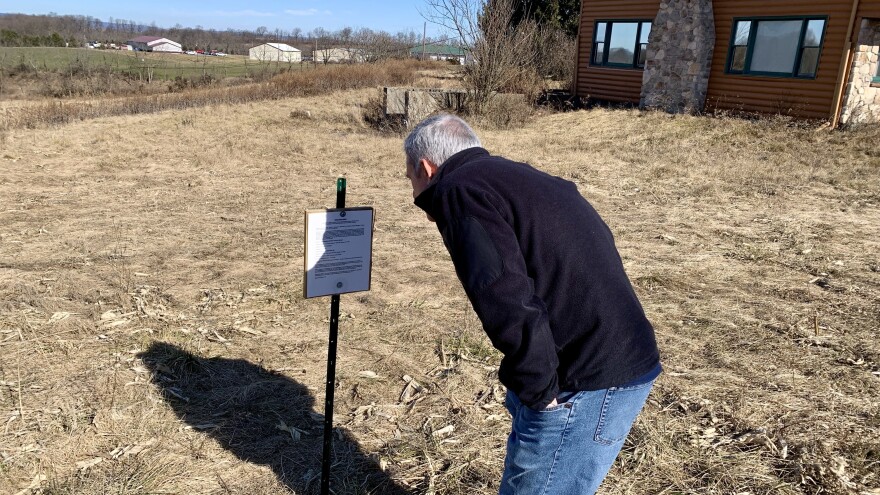
Dietrich said he thinks part of the problem was that local journalists didn’t always attend the municipal meetings, or if they did, they didn’t have time to dig into what was happening.
“We need to have people informed, and we need to have good strong local journalism to help that to happen,” Dietrich said.
Wessner said he thinks the township should have done a better job explaining the laws and regulations governing the township’s decisions.
“You [have to] sit down with the residents and explain to them what the rules are, you know, and what the consequences are,” Wessner said.
Keba said if the township does not have enough money to appeal the court decisions, the resident group may try to get free legal work or raise money.
But no matter what, Keba said, the group will keep working to stop the warehouses until there’s no other path to follow.
“I think that's something we all have in common is that we're never letting go,” Keba said. “There's nothing that's going to stop me. I can tell you that right now.
“There's nothing that will stop me from fighting this battle until the bitter end.”
COMING TOMORROW: IN SEARCH OF SOLUTIONS
How some are deploying a combination of smart growth techniques, regional cooperation and state law to manage growth. An in-depth look at how some communities are doing it.

